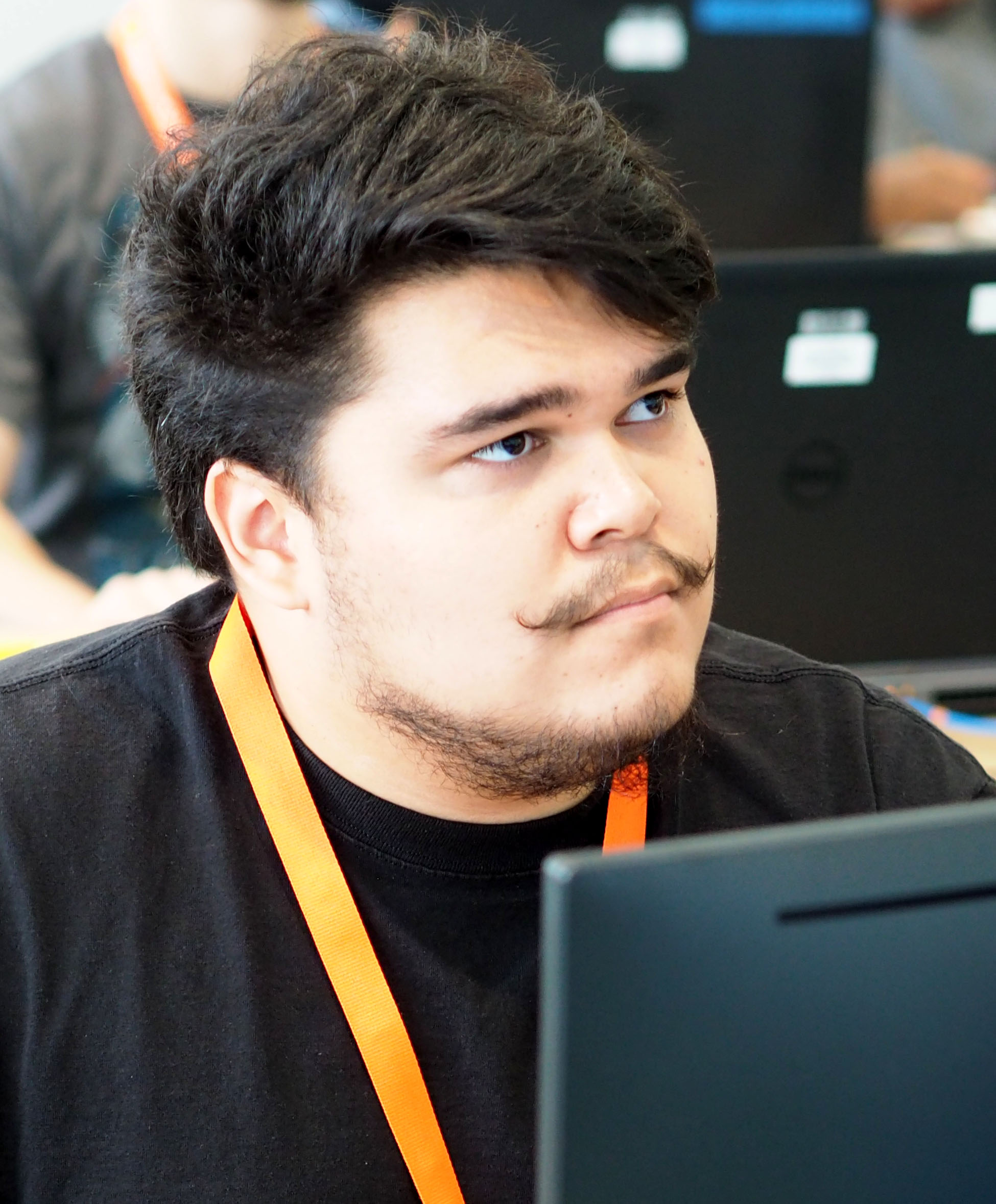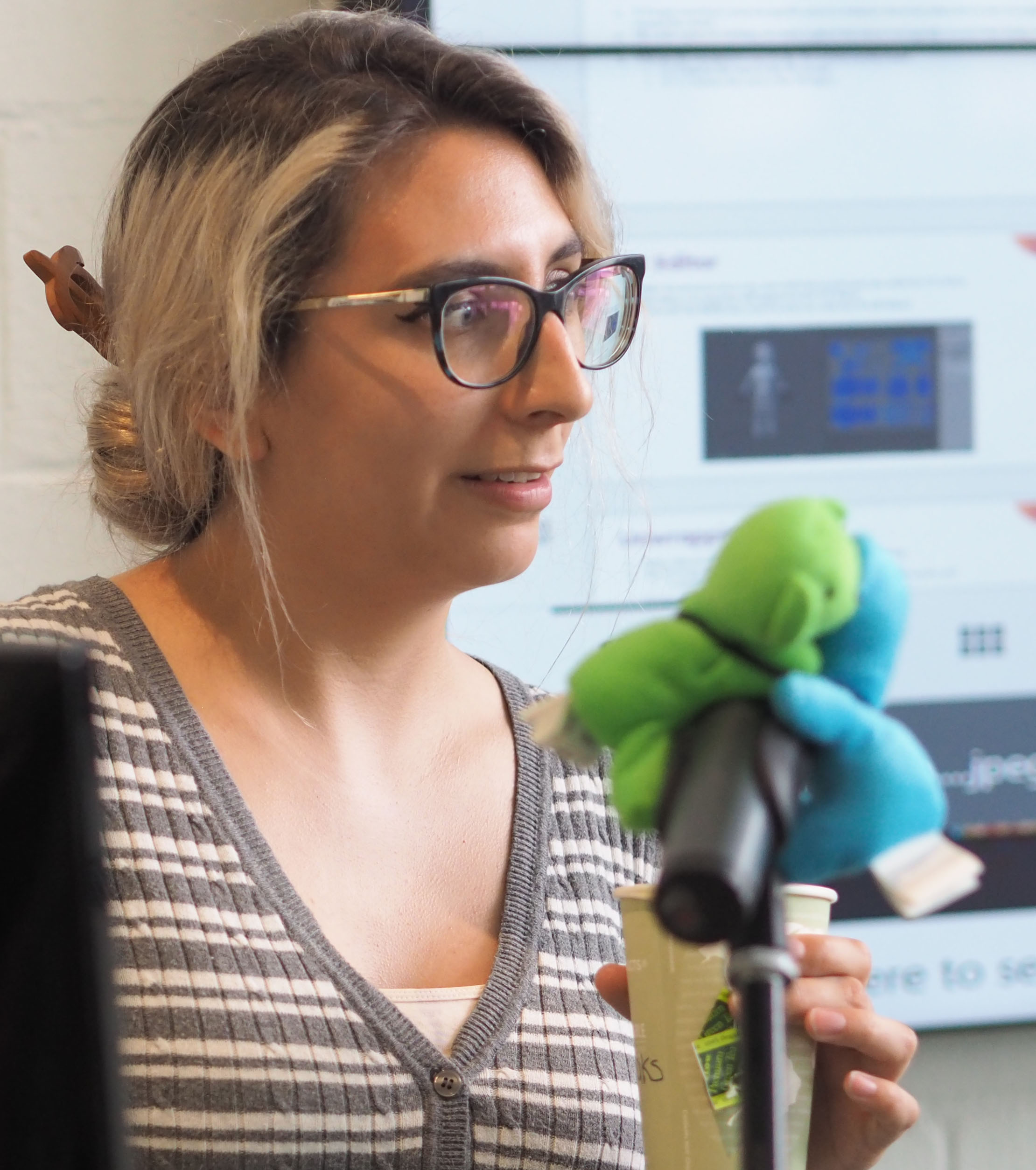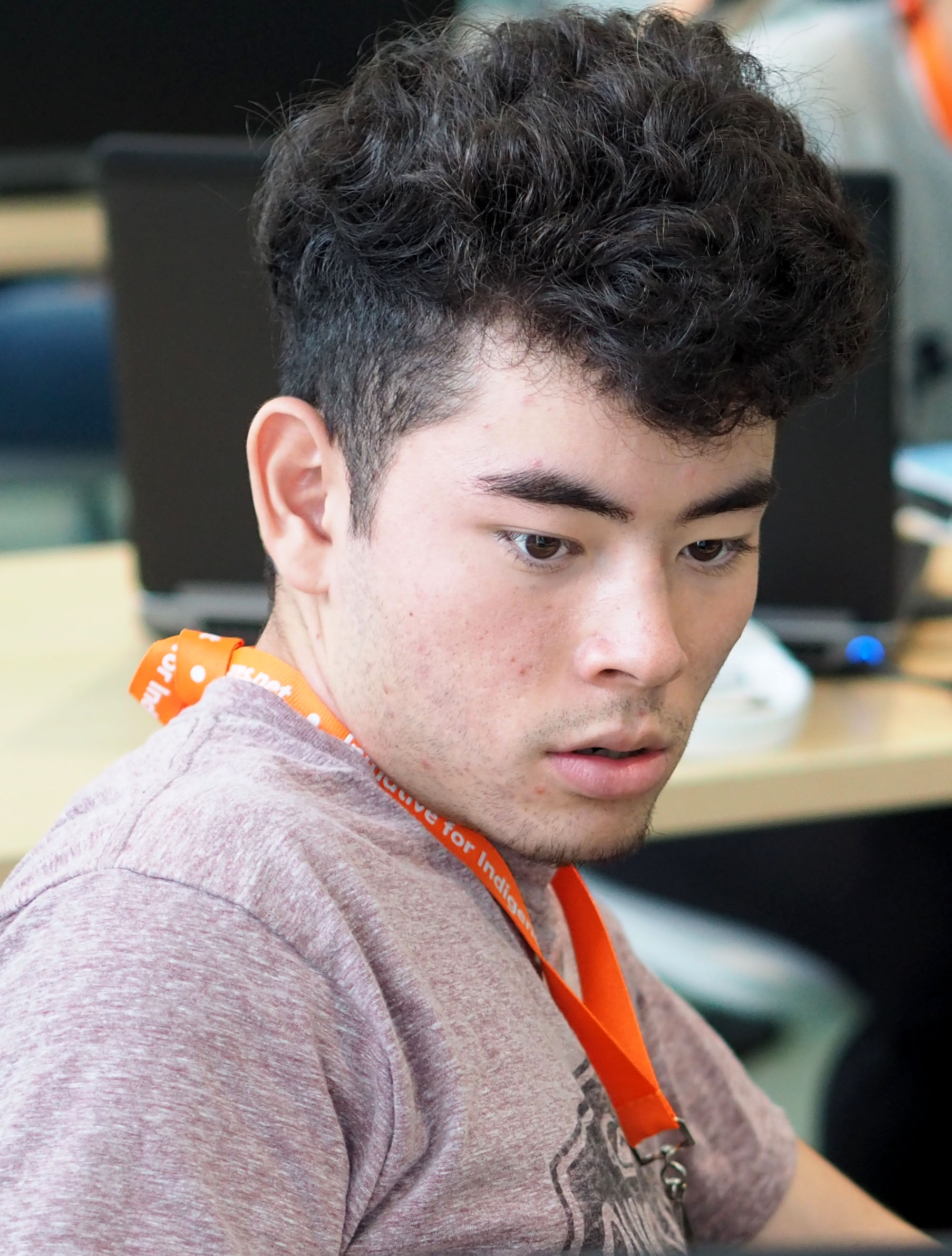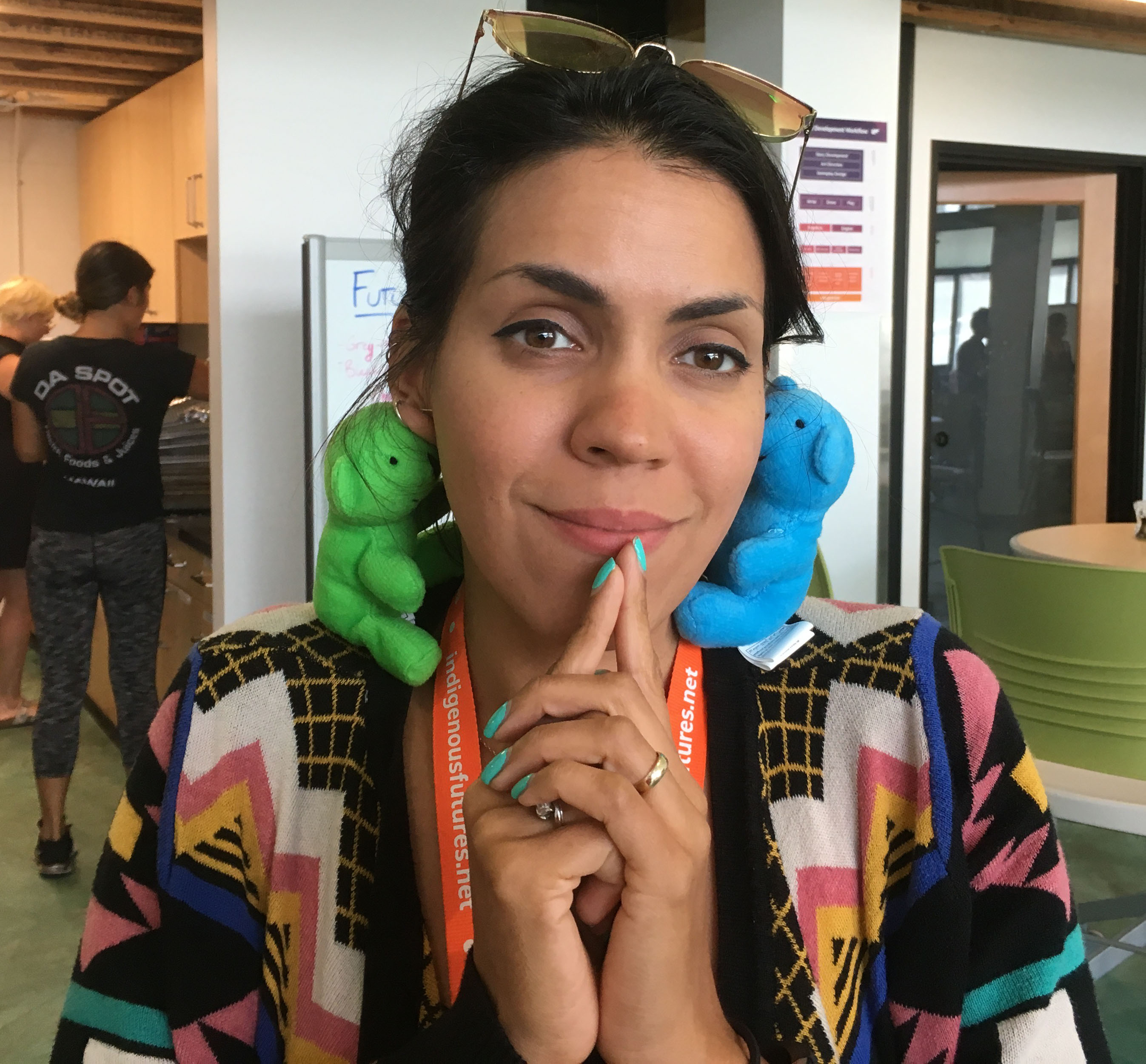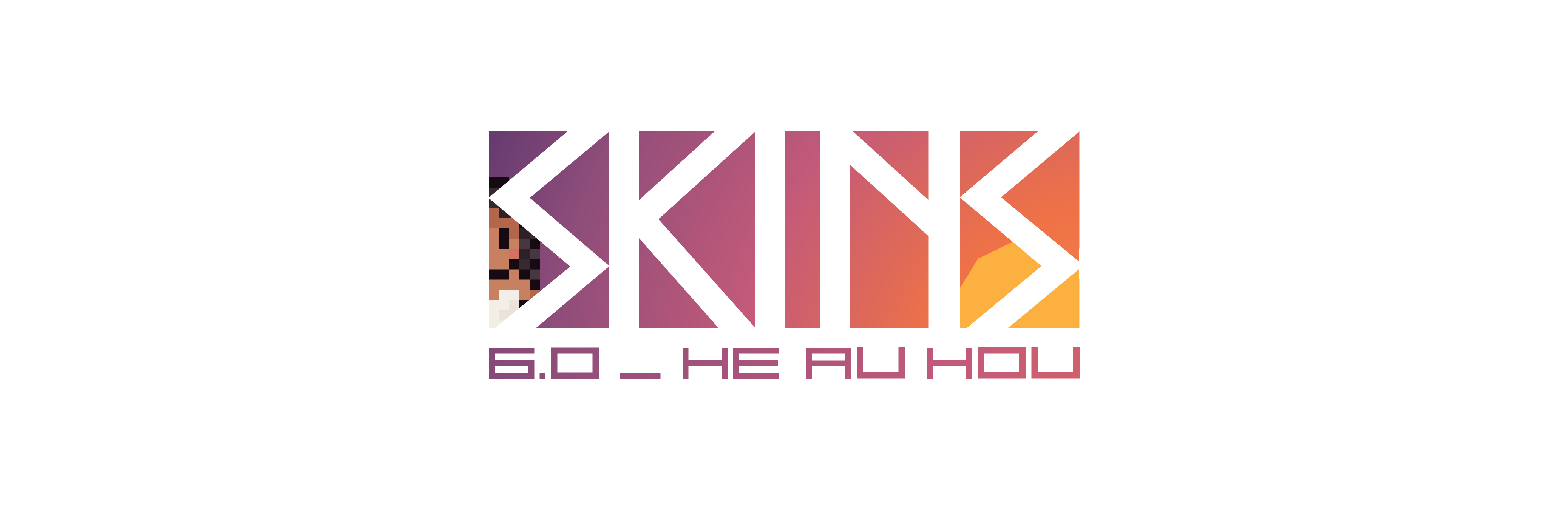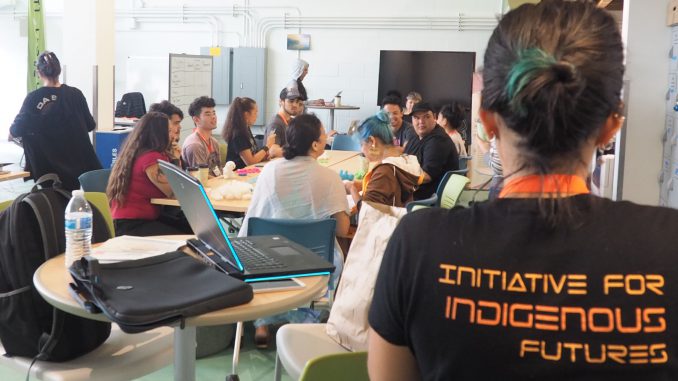
The morning was spent looking at the proposed game, reviewing the story line and the game mechanics. What will the game play look and feel like? With only two more days to complete the initial software training there were six more lessons in sound, UV-mapping and an introduction to fundamental programming.
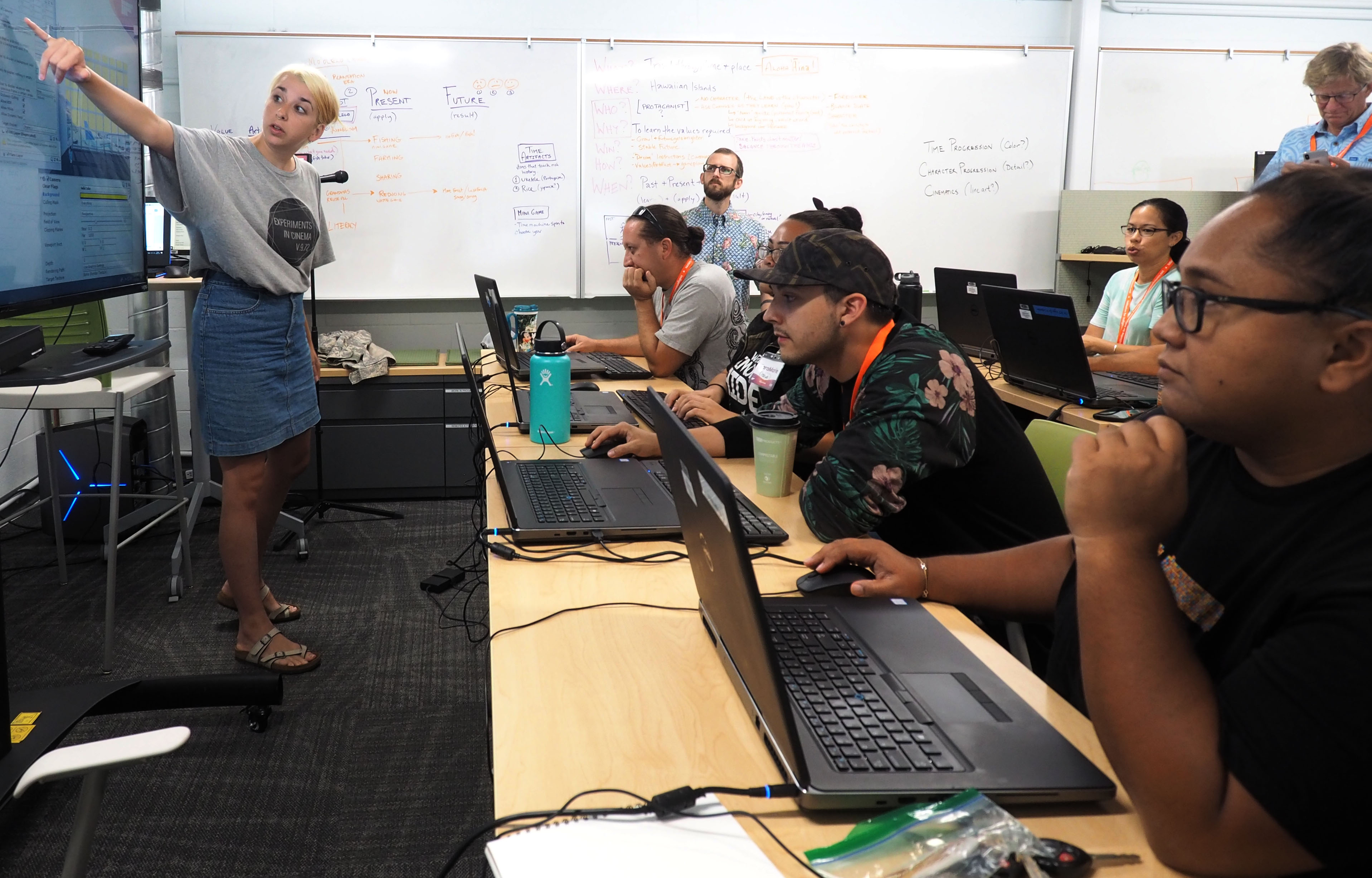
Now that the software has been introduced, the participants will divide themselves into four streams of smaller groups to experience the direction they may wish to take for the development phase and for the creation phase to complete the game story line. Having had the opportunity to work with all of the software, it is time to reorganize the working groups to take on their final tasks. It is also time to finalize and to create the final story line up to the game play goals. Which of their proposed 4 mini games will stay and which one may have to be cut? They must make these important decisions that will impact on the direction of the whole game.
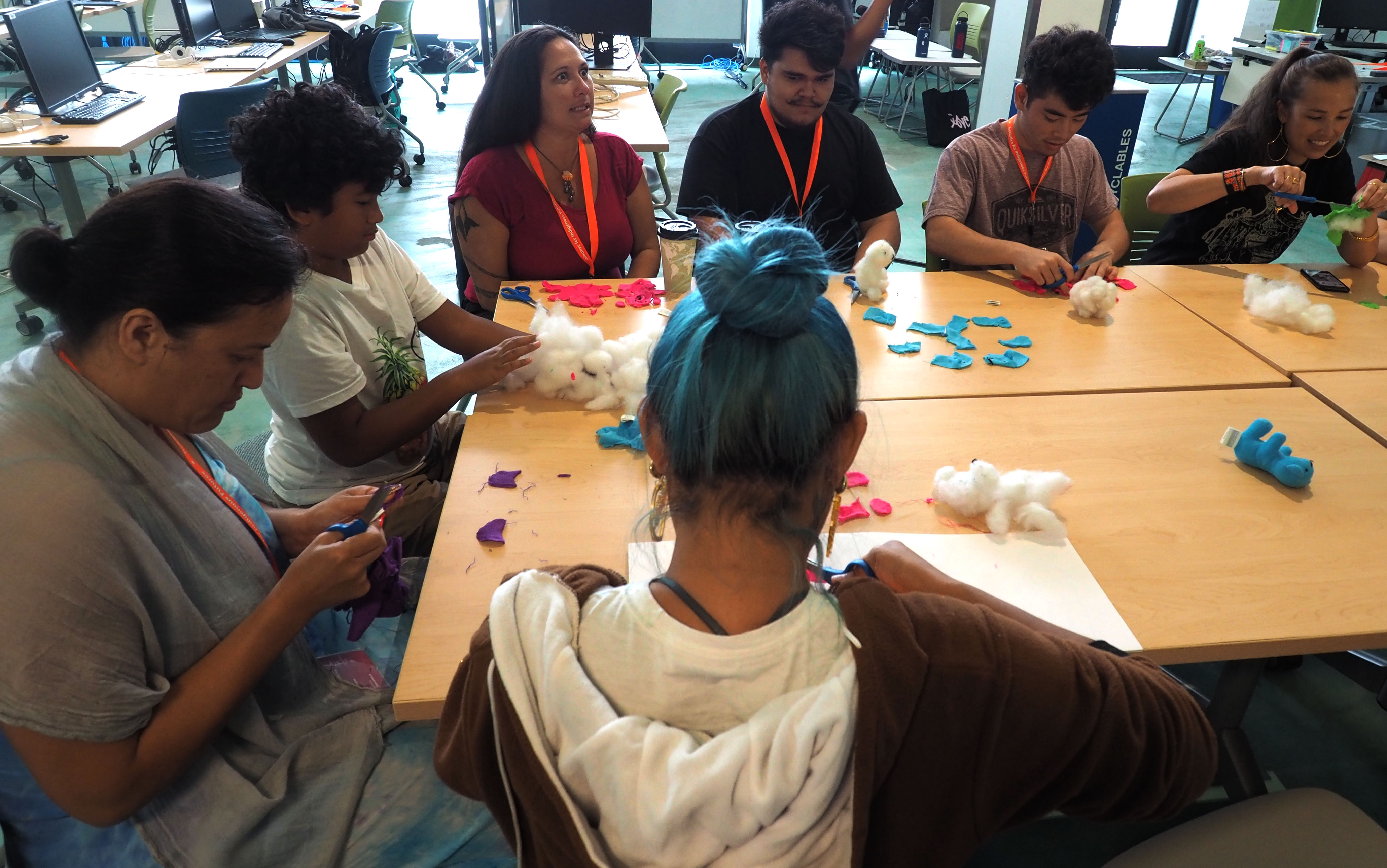
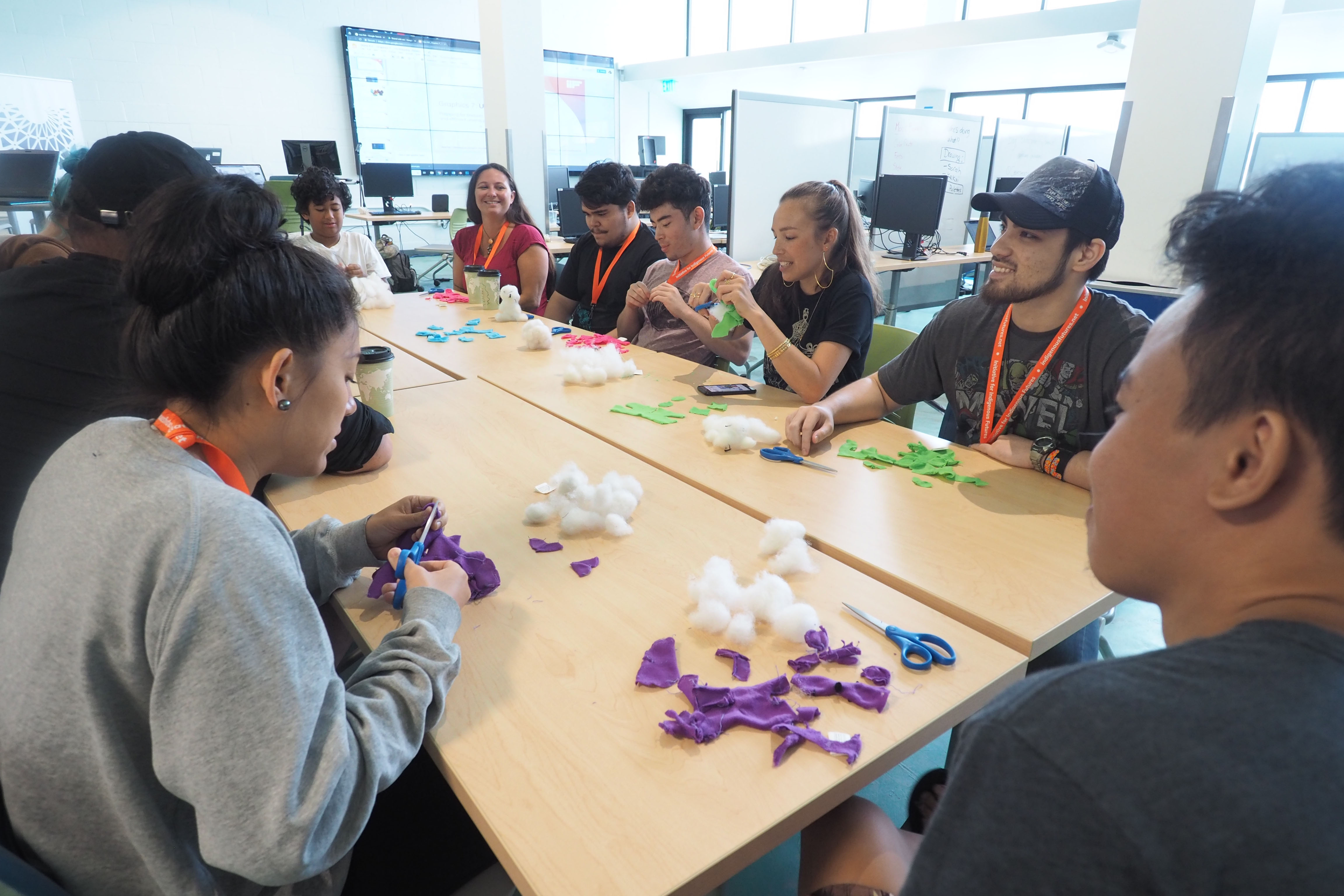
Iterative game play discussions are the process by which a proposed game is repeatedly proposed, prototype are play tested and re-evaluated prior to building. Iteration is key to working out any potential flaw and to review the asset lists to review the development in progress.
The play breaks are using both published games and proposed prototypes to provide vital testing feedback for the next prototype build. This will happen many times with different parts of the stories, game play, scoring and cinematic. And again iterations begin with play testing. At this point of the workshop, and after many iterations, beginning with the end in mind will help participants to decide their roles and responsibilities to the whole team. At a crescendo of iterations, choices are made by the whole group and it is decided they paths they are taking to create the final digital formats.
Mahalo
